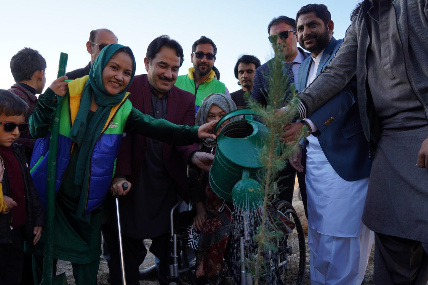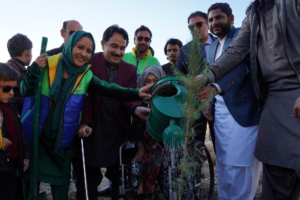Editorial:
As the Government of Balochistan prepares its annual budget for the financial year 2025–2026, the timing is critical to address one of the most pressing issues of our time: climate change. From the mountains of Quetta to the deserts of Chagai, every corner of Balochistan is vulnerable to natural disasters—including earthquakes, floods, droughts, and heatwaves—making it imperative for the government to take bold and visionary action.
We strongly urge the provincial government to launch a “Million Tree Tsunami”—if not a Billion Tree Tsunami—as a provincial flagship project to mitigate the devastating effects of global warming. Trees are not just a solution—they are a necessity. They improve air quality, reduce heat, retain water, and protect communities from environmental degradation.
This initiative should begin immediately, targeting all divisional headquarters and climate-vulnerable zones of Balochistan. Pakistan ranks among the top 10 countries most at risk from climate change, and Balochistan—covering nearly half of the country’s landmass—must not be overlooked.
Despite its vulnerability, Quetta stands first in air quality among Pakistan’s major cities—not because of any government-led environmental intervention, but thanks to its natural geography. Unfortunately, our institutions and planning mechanisms have failed to replicate or support this natural advantage in other regions. It’s time to change that.
We propose the establishment of a Climate Change Task Force, composed of environmental scientists, local experts, and civil society representatives, to design, implement, and monitor this ambitious plantation drive. Furthermore, there is an urgent need to divert funds from wasteful and corruption-prone departments toward environmental protection.
Each year, billions of rupees are spent on road infrastructure and embankments that are washed away within months of their construction due to poor quality and weak oversight. Instead of endlessly repairing what fails, it’s time to invest in what lasts—nature itself.
The government must also reconsider its spending priorities by reducing non-development expenditures and channeling resources into long-term environmental resilience. Protecting the lives and livelihoods of millions of Balochistan’s residents depends not only on emergency responses but on proactive environmental planning.
A tree today is a life protected tomorrow. Let this budget cycle be the moment when Balochistan plants the seeds of its survival—literally. The time to act is now.






